Three previous finalists fight for glory with two Stirling newcomers and a double award-winner
The Stirling Prize shortlist has been announced, with six projects in contention.
Richard Rogers has been shortlisted for what could be a record-breaking third Stirling Prize, for his luxury Neo Bankside flats behind the Tate Modern.
The two projects not in the capital – Manchester’s Whitworth Gallery extension by MUMA, and Lanarkshire’s Maggie’s centre by Reiach & Hall – are both designed by first-time Stirling finalists.
The three schemes completing the 2015 shortlist are all by architects who will be hoping to graduate from finalist to winner this year.
Not only are these the best new housing projects, school, university, cultural and health buildings in the country today, they are game-changers that other architects, clients and local authorities should aspire to.
The RIBA Stirling Prize judges have an unenviable task.
Stephen Hodder
Niall McLaughlin, who has been shortlisted for a Peabody housing scheme in the East End, was a favourite in 2013 with a chapel in Oxfordshire.
Heneghan Peng, shortlisted this year for a university building in Greenwich, also missed out in 2013 with its Giant’s Causeway visitor centre.
And AHMM, which is hoping for top honours this year with Burntwood School in Tooting, a BSF survivor, was last a contender in 2010 with its redevelopment of the Angel office building in Islington.
Richard Rogers has been shortlisted five times before and won twice – for Madrid’s Barajas Airport terminal in 2006 and the Maggie’s centre in Hammersmith in 2009.
If he pulls off a third win on October 15 his will be the first practice to score a Stirling hat-trick.
Since the Stirling Prize was launched in 1996, four architects have bagged two winners each. The others are Zaha Hadid, Foster & Partners and Wilkinson Eyre.
This year’s prize is the third in a row not to come with a cash prize, after new sponsors Brockton Capital pulled out in December, six months after signing a deal with the RIBA.
Projects whose omission might raise eyebrows include Haworth Tompkins’ improvements at the National Theatre, Architecture 00’s Foundry social justice centre in Vauxhall and Proctor & Matthews’ Abode housing at Great Kneighton, Cambridge.
RIBA president Stephen Hodder, who won the inaugural Stirling Prize for his Centenary Building at Salford University, said the winner would be the building that had made the “biggest contribution to the evolution of architecture” in the last year.
“Every one of the six shortlisted buildings illustrates why great architecture is so valuable,” he said.
“It has the power to delight, inspire and comfort us at all stages of our lives; to improve a student’s potential to learn, to provide a family with a decent home, and to create a sensitive and uplifting healthcare environment.
“In the shortlist we have six model buildings that will immeasurably improve the lives and wellbeing of all those who encounter them.”
He said each building was a “game-changer” that left the jury with an unenviable task and to which other architects, local authorities and clients should aspire.
Hodder added: “The shortlisted projects are each surprising new additions to urban locations – hemmed in to a hospital car park, in-filling an east London square, completing a school campus – but their stand-out common quality is their exceptionally executed, crafted detail.
“From the simple palette of materials used on the Maggie’s centre, to the huge repeating facades of Neo Bankside, every detail on every building, both internally and externally, is well-executed.”
The jury, which will visit all six buildings, is chaired by RIBA president elect Jane Duncan and features Steve Tompkins, from last year’s winner Haworth Tompkins, Peter Clegg, from Feilden Clegg Bradley Studios, and Theresa Sackler, arts philanthropist
The 2015 RIBA Stirling Prize shortlist
Burntwood School, Wandsworth, London SW17 by Allford Hall Monaghan Morris
Bold, characterful new campus buildings with light-filled rooms and corridors add to a sense of this being a very collegiate school.
Darbishire Place, Peabody housing, Whitechapel, London E1 by Niall McLaughlin Architects
Dignified new 13-home Peabody apartment building, with refined proportions and details.
Maggie’s Lanarkshire, Monklands District General Hospital, Airdrie by Reiach and Hall Architects
Modest, low building that gathers a sequence of domestic-scaled spaces. Visitors enter via a quiet arrival court, defined by the low brick walls and two lime trees. At once, a sense of dignity and calm is encountered.
NEO Bankside, London SE1 by Rogers Stirk Harbour & Partners
New luxury housing towers with exo-skeleton and external lifts on London’s South Bank – a well-mannered example of a structurally expressive architecture.
University of Greenwich Stockwell Street Building, London SE10 by Heneghan Peng architects
Located in a Unesco World Heritage Site, this delightful building houses the main university library and the departments of architecture, landscape and arts.
The Whitworth, University of Manchester byMUMA
Extension to the 19th-century Whitworth Gallery – carefullly crafted spaces emerge seamlessly from the existing as an integral yet individualistic part of the whole assembly.
RIBA
‘Shortlist shows why UK architects enjoy global renown’
The RIBA Stirling Prize shortlist features exceptional buildings designed for every stage of our lives: housing projects, a school, university, cultural and health buildings have all made the grade and show why the UK’s architectural talent and ambition is famed around the world.
The two education buildings – a suburban secondary academy and a slick new university building on a Unesco site – will inspire any student lucky enough to learn in them. At the University of Greenwich, the new library, architecture and landscape school is a glamorous and flexible space – it lives harmoniously with its community who can enter the generous gallery, shop and cafe. Burntwood Academy is a huge south London girls’ school; AHMM, arguably the UK’s best schools architects, have created a university-like campus building with light-filled classrooms and generous corridors. This project is built to last and adds huge value to the attainment and behaviour potential of its students. This is a model in secondary education design and shows why schools need the best architectural thinking – well-designed schools add long-term value and inspire all those who attend and work in them.
On the shortlist are two highly successful dense and compact housing schemes on brownfield sites in London – a Peabody social housing apartment block on a former bomb site (Darbishire Place) and five luxury housing towers on the site of old warehouses (Neo Bankside). Both projects provide the highest-quality housing for the capital’s diverse and growing community.
The final two buildings on the shortlist are highly sensitive and inclusive projects: Maggie’s Lanarkshire cancer care centre is an oasis of calm retreat created in a previously alienating and unsympathetic environment – the corner of a hospital car park. The Whitworth is a tour de force; the extension and adaptation of a 19th-century gallery; the project has created an art gallery of truly international standard.
RIBA
Source
This story first appeared on Building Design




















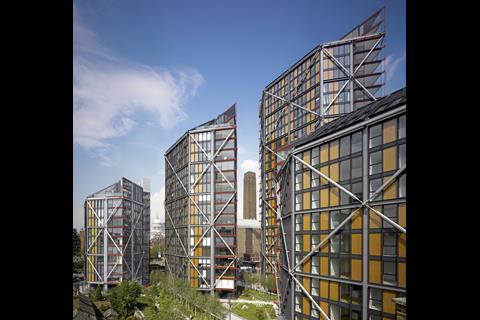
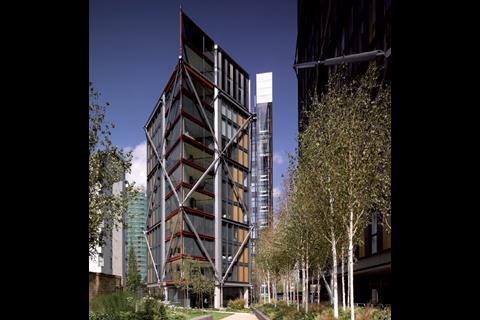
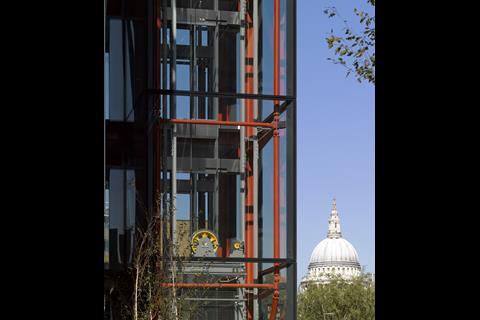
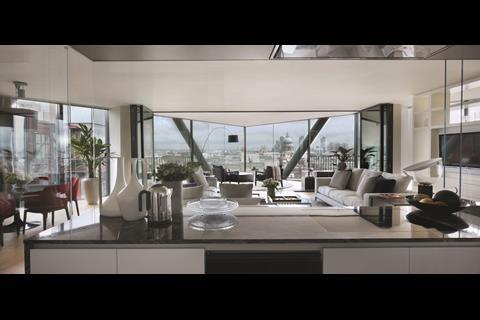
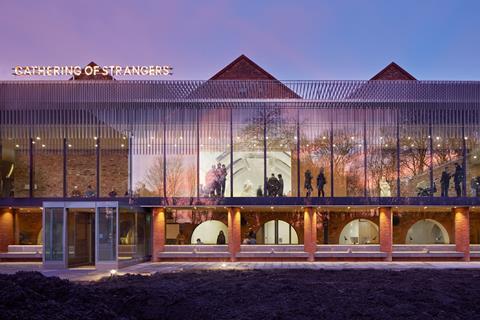
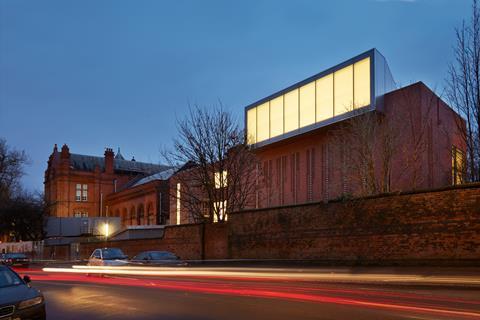
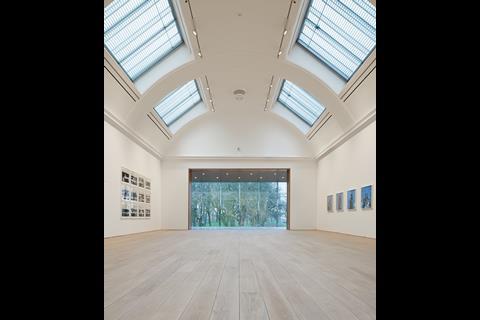
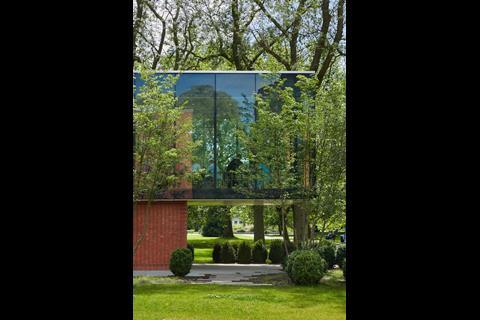
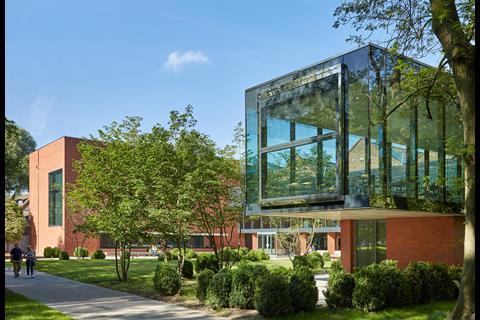
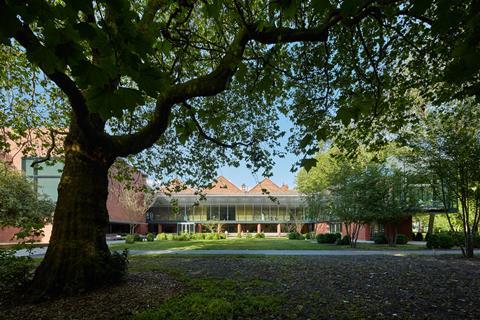
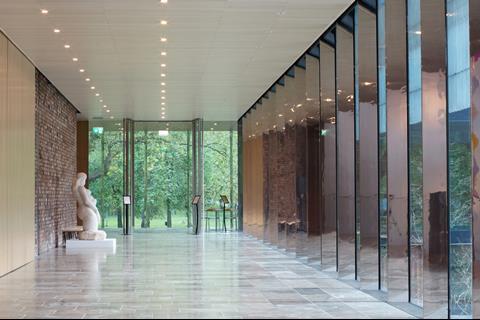
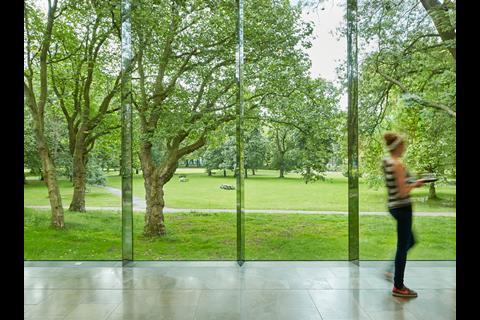
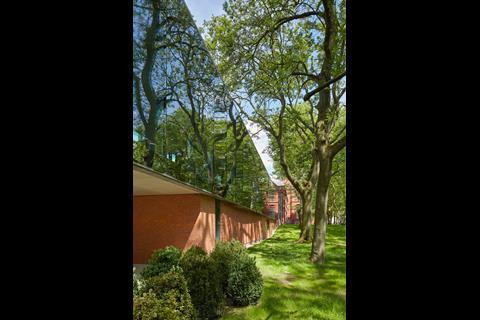
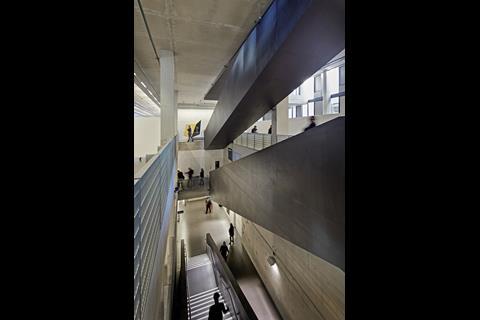
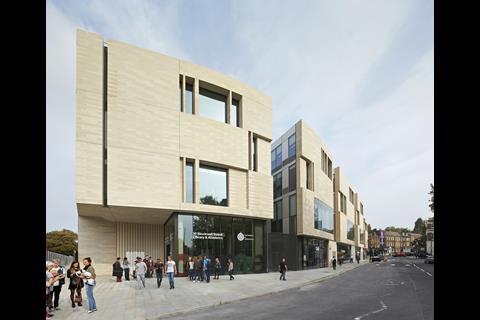
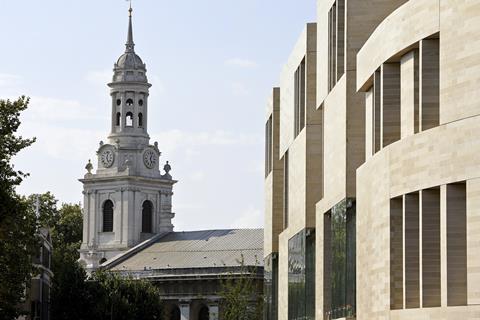
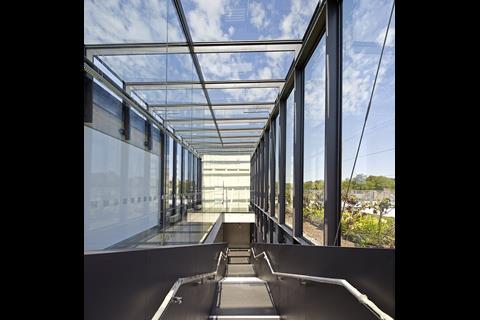
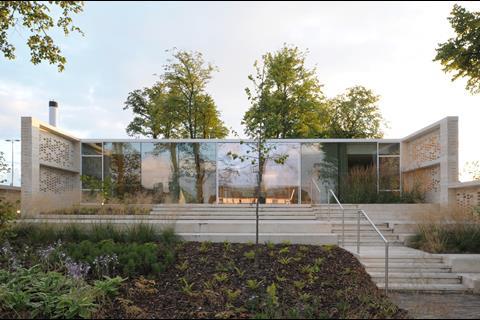
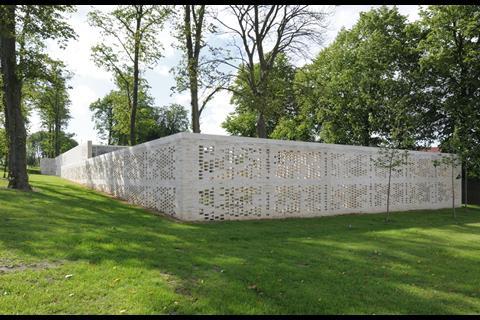
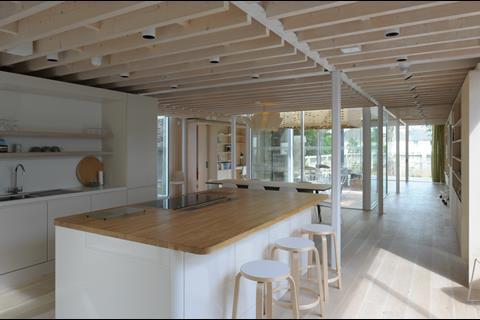
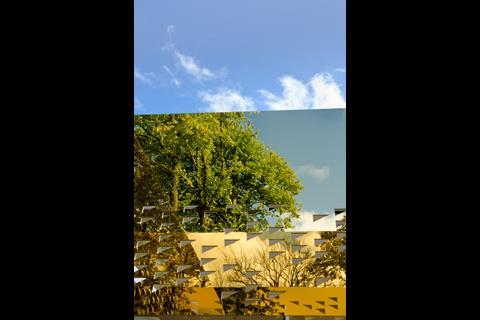
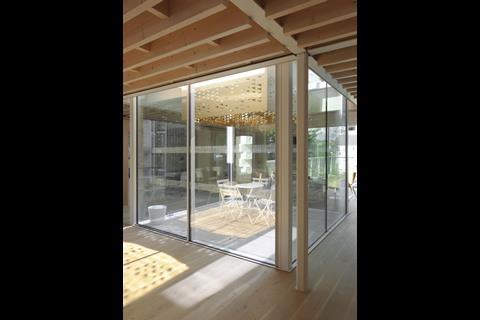
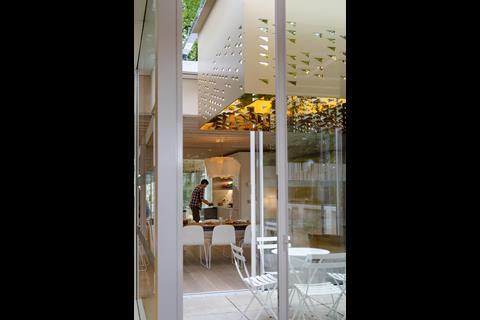
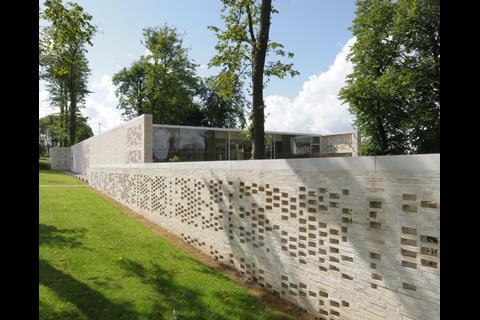
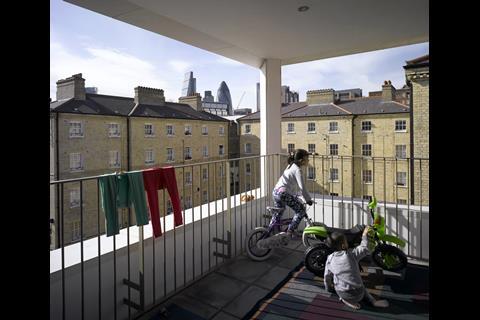
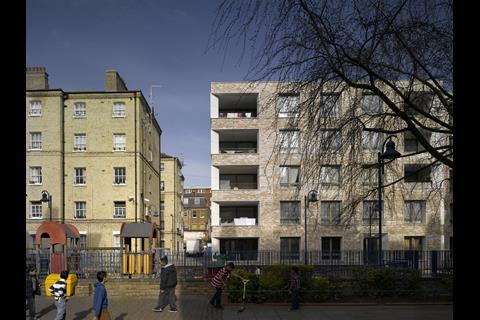
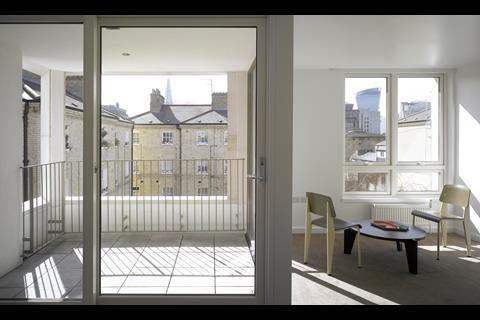
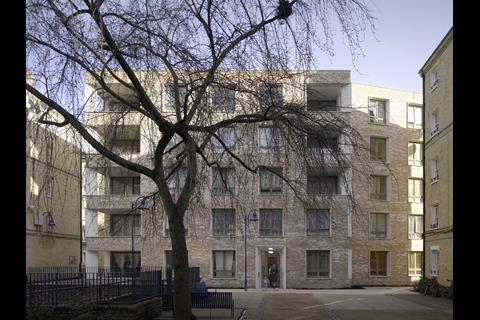
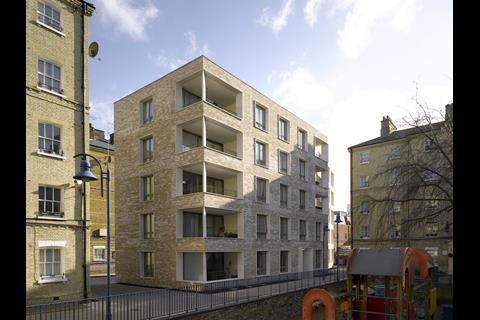
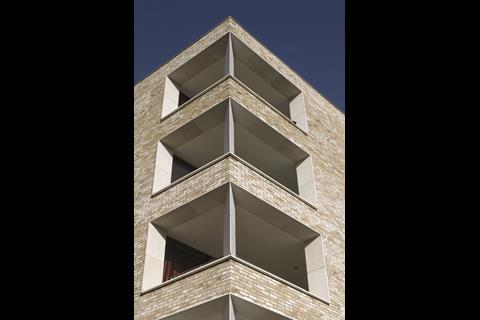
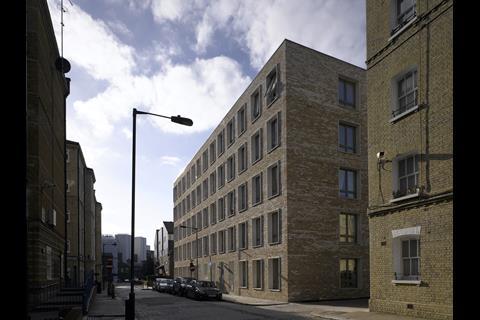
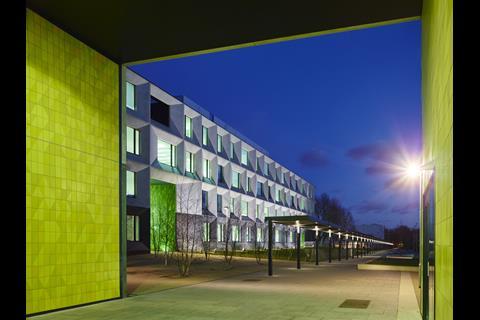
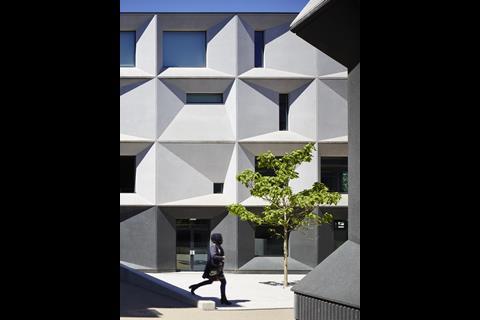
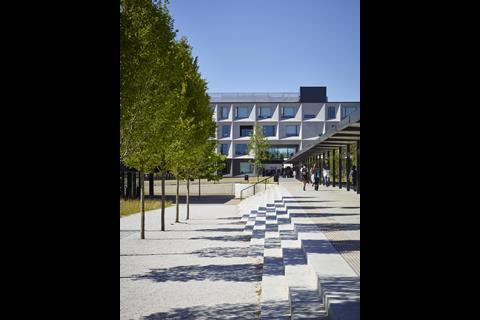
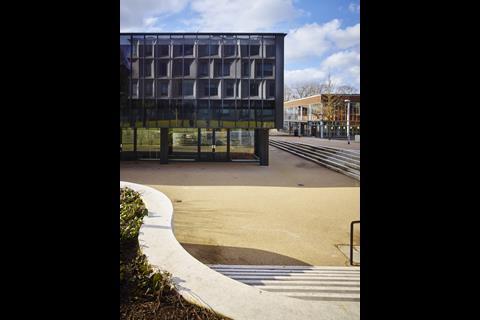
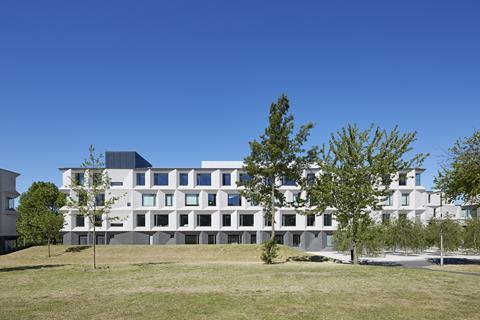
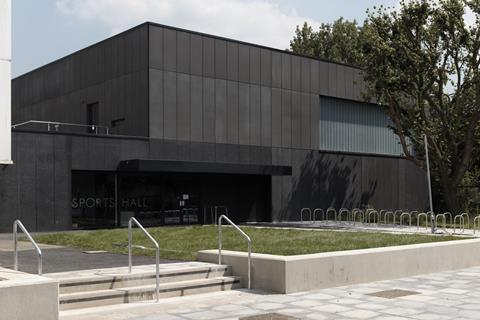







No comments yet